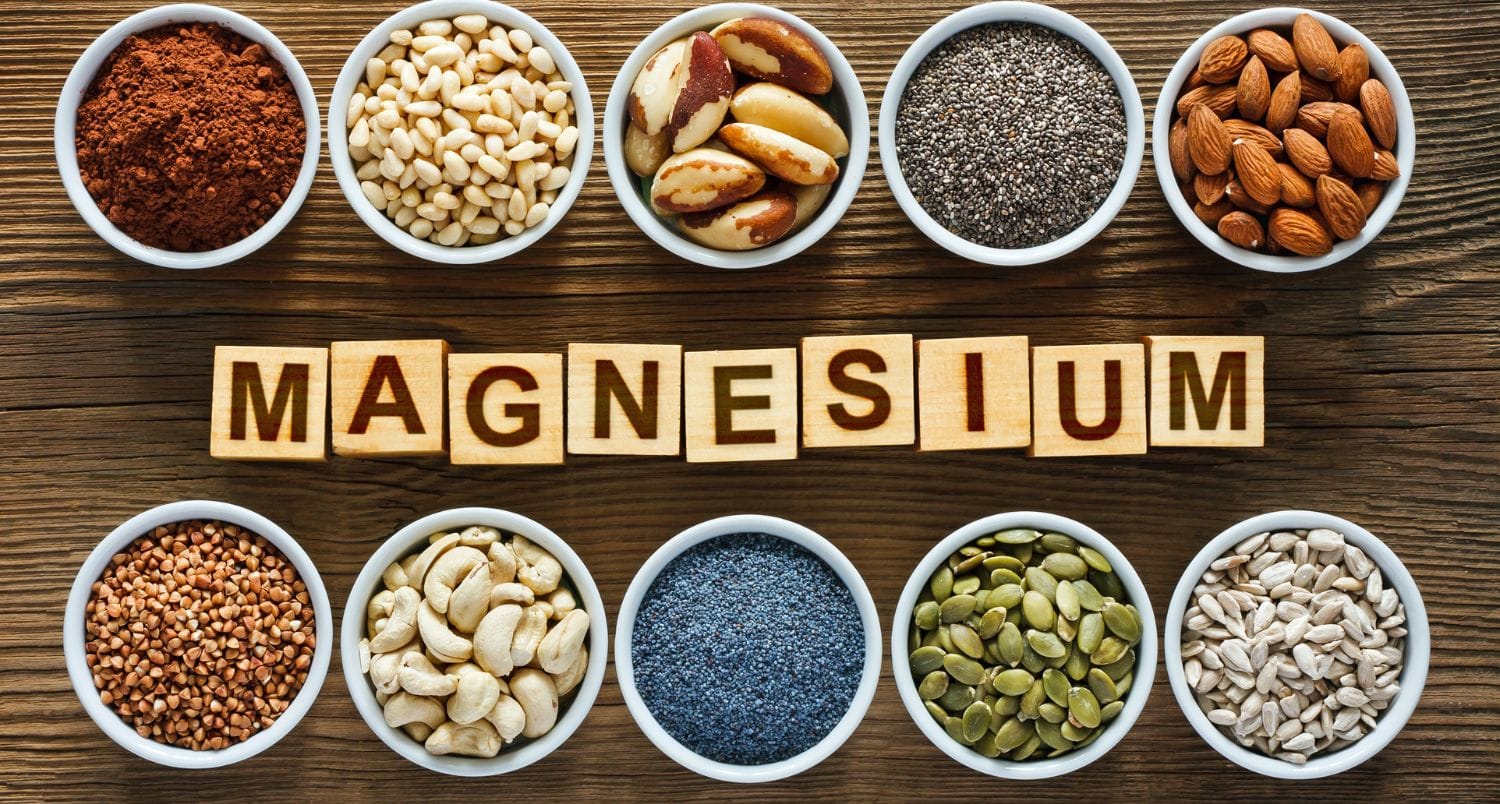
EVERYTHING YOU NEED TO KNOW ABOUT MAGNESIUM
Magnesium is an important mineral for our body, as it is essential for many bodily processes. Among other things, it contributes to muscle and nerve function, supports the immune system and promotes bone health. In this blog post, we will take a closer look at magnesium and provide important information on identifying magnesium deficiency, prevention, recommended daily intake, overdose, food sources and the importance of magnesium in pregnancy.
-
How do you recognize a magnesium deficiency?
A magnesium deficiency can lead to a variety of symptoms, which, however, often cannot be clearly attributed to a deficiency. Typical signs can include fatigue, muscle cramps, tremors, headaches and concentration problems. An exact diagnosis can only be made by a blood test, which determines the magnesium level in the blood.

-
How to prevent magnesium deficiency?
A balanced diet is the best way to prevent magnesium deficiency. It is recommended that magnesium-rich foods such as whole grains, nuts, green vegetables and bananas be consumed regularly. Mineral water can also be a good source of magnesium. Another option is to take dietary supplements, but this should only be done in consultation with a doctor or nutritionist.

-
How much magnesium does a person need in a day?
The recommended daily intake of magnesium varies according to age and gender. Adult women need about 310 to 320 milligrams per day, while men need slightly more, about 400 to 420 milligrams. Pregnant and lactating women have a higher requirement, ranging from 350 to 450 milligrams per day. Older people and athletes also often need more magnesium.

-
Is it possible to overdose magnesium?
Magnesium overdose is very rare because the body normally excretes excess magnesium. However, excessive intake of magnesium may cause diarrhea, nausea, vomiting, and a slowed heart rate. Long-term overdose can lead to kidney problems. It is recommended not to exceed the recommended daily intake.
-
What foods contain magnesium?
Magnesium is found in many foods, especially whole grains, nuts, green vegetables such as spinach and broccoli, legumes, bananas and mineral water. Dark chocolate and avocado are also good sources of magnesium.

-
Do you need magnesium during pregnancy?
Yes, sufficient magnesium intake is particularly important during pregnancy, as the body needs more magnesium during this time. Among other things, it contributes to the development of the fetus and can help prevent pregnancy complications such as gestational diabetes or preeclampsia. A balanced diet with foods rich in magnesium can help meet the need during pregnancy. If necessary, it may also be useful to take magnesium supplements in consultation with a doctor or midwife.

Conclusion:
Magnesium is an important nutrient for our body and contributes to many bodily processes. A magnesium deficiency can lead to symptoms such as fatigue and muscle cramps, but can be prevented by eating a balanced diet and taking supplements if necessary. Recommended daily intake varies by age, gender and lifestyle, and magnesium overdose is rare. Magnesium-rich foods such as whole grains, nuts and green vegetables should be regularly included in the diet, especially during pregnancy.


